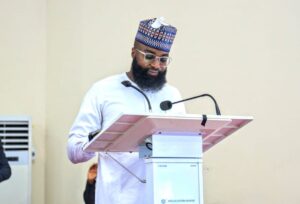Digital skills are now shaping the future of education in Nigeria. Teachers across the country are beginning to benefit from a bold new initiative. The National Information Technology Development Agency (NITDA) is driving this shift through its flagship programme, Digital Literacy for All (DL4ALL).
This initiative focuses on one urgent goal—empowering teachers with essential digital skills. As technology becomes central to education, teachers must adapt or risk falling behind. NITDA understands this. Therefore, the agency has taken deliberate steps to build capacity from the ground up.
Teachers are the foundation of every education system. When they succeed, students thrive. For this reason, investing in their digital confidence makes long-term sense. Digital skills improve classroom engagement, boost efficiency, and help teachers reach more students in smarter ways.
NITDA’s approach is hands-on, practical, and forward-thinking. The training goes beyond basic computer literacy. It introduces teachers to tools that enhance learning, collaboration, and access. Moreover, it prepares them to function in classrooms shaped by technology—not threatened by it.
As a result, more educators are now exploring virtual teaching platforms, digital resource hubs, and automated systems. These tools reduce workload while improving the quality of education. More importantly, they make learning more inclusive. Students in remote areas can now access lessons once out of reach.
NITDA’s commitment to digital education is not random. It reflects a clear national vision for progress. Nigeria’s future depends on how well its teachers can respond to digital demands. Equipping them today builds a stronger workforce tomorrow.
So far, DL4ALL has made noticeable impact in key regions. Teachers are responding with enthusiasm. Many now see technology as a partner, not a threat. That shift in mindset matters. It’s what transforms good teachers into great ones.
In many training sessions, participants have praised the programme’s relevance. They appreciate the simplicity of the tools introduced. In turn, they apply these skills directly in their schools. Because of this, students benefit almost immediately.
Furthermore, NITDA’s strategy encourages peer learning. Teachers are forming small digital learning circles. These groups allow continuous support long after formal training ends. Such organic collaboration helps ensure that digital literacy spreads faster and stays rooted.
The momentum is strong. However, the work is far from done. Nigeria still has thousands of educators who lack digital access or training. Reaching them remains a challenge. Yet, DL4ALL is structured to grow. Its design allows scale and adaptation across different zones.
Looking ahead, the success of this initiative depends on consistency. Policymakers, school leaders, and education stakeholders must rally behind it. When they do, they help secure a better learning environment for future generations.
Digital skills are no longer optional for teachers. They are essential. Thanks to NITDA’s leadership, more teachers are finally getting the tools they need. And that’s how transformation begins—not through speeches, but through skills.





